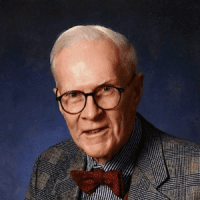This column, the last of the year, is being written at the end of October, in order to make it to members’ mailboxes in a timely fashion before the holidays and before the annual meeting in New York City. Its timing, however, raises thoughts of “where did 1990 go,” all the more since your headquarters and its staff are certainly not ready at this time for the year to end! With the departure of our neighbors on Capitol Hill, the 535 Representatives and Senators, most of them in the grip of terror at their temerity in passing a tax-raising budget reconciliation bill (only a month late) and at their perception of an anti-incumbent mood among the electorate, our sleepy Southern town on the Potomac has relapsed into traditional out-of-session somnolence.
Nevertheless, the AHA professional staff is being kept busy. October saw the usual trickle of visitors from foreign countries (Finland, Turkey, and the USSR) and a number of calls and visits from convention bureaus seeking to host a future AHA annual meeting.
Headquarters staff had a lengthy meeting with representatives of the Research Division of the National Endowment for the Humanities to report on progress on two major finding-aid projects we have under way or in the planning. These are the third edition of the magisterial Guide to Historical Literature and a hoped-for project in cooperation with the Conference on Latin American History to produce a directory of archival materials in U.S. repositories relating to the Hispanic experience in the New World 1492–1840. The Guide project will be opening its doors in January with the support of the University of Maryland at College Park. The Hispanic archives project can probably be funded if it is launched before the Columbus quincentennial 1992 “window” closes.
As always the most important activities of the Association are those involving its governing body, the Council, and the divisional committees. Both the Research and Professional Divisions held their fall meetings in Washington during October.
The Research Division met October 12–13. It reviewed forty-four applications for the Bernadotte E. Schmitt grants for research in European, African, or Asian history and made nine awards totalling $5,000 (three women, six men). The Schmitt grants lend assistance for projects in Old World history and are named for former 1960 AHA President Bernadotte Schmitt who was a generous donor to the Association’s endowment. (See page 13)
The Research Division dealt with several matters referred to it by the Council. It reviewed the century-old practice of naming honorary foreign members, distinguished historians who have also been notably helpful to American scholars in their countries, and confirmed to the Council its belief in the utility of the custom as well as its plans to solicit nominations of scholars meeting this criteria from a wider circle of foreign countries. Hitherto, Western Europe, Japan, and Mexico have supplied most of our honoraries.
A number of matters relating to our many book prizes were also settled by the Division. It decided to retain the de Tocqueville Prize for the best work on U.S. history by a foreign scholar published outside the United States and to seek collaboration from the American Studies Association in publicizing the award. It agreed that the new biennial Forkosch Prize in British history will be launched in 1993, two years after the last awarding of the present quinquennial Schuyler Prize in British history. It offered assistance to several affiliates which had sought AHA aid in the administration of their own prizes, but voted not to make them joint prizes if they are of a specialized nature. The Division also expressed its strong support for prize committee chairs in the conduct of their arduous duties.
Finally, the Research Division continued its exploration with a representative from Kraus International Publications on the possibilities for continuing the annual Writings on American History and commencing a companion work on non-American fields not covered by other bibliographies.
The Professional Division met on October 22. As has become the norm for its meetings in recent years, most of the activity concerned the publicizing and implementation of the Association’s Statement on Standards of Professional Conduct, now available gratis in single copy, pamphlet form. The Committee decided to call the Statement to the attention of chairs and advisors of graduate departments to gather information about present methods of bringing ethical professional standards to the attention of new graduate students. New members of the AHA will also receive a copy with other membership material. The Committee also extended the EIB policy statement to require job vacancy notices in Perspectives to state if attendance at the AHA annual meeting is a requirement for interviewing.
The Division also reviewed with satisfaction developments in three cases it had earlier adjudicated, and it conducted preliminary discussion of five cases now in the informal stage that may result in the filing of formal complaints. The Division received with interest a report from the editor of Perspectives, who with her deputy organizes and manages the Job Register at the AHA annual meeting. It is hopeful that changes planned for the New York meeting will make the Job Register more effective and less stressful for participants.
Finally, the Professional Division approved the text of a new edition of its guidelines on hiring women historians and directed that they be sent to departments so that they may continue to monitor their progress effectively.
October did not pass without the flurry of other meetings. The deputy executive director represented the AHA at a meeting of the National History Day board in Cleveland early in the month, while other members of the staff met with the two separate lobbying organizations involving sister disciplines, the Consortium of Social Science Associations and the National Humanities Alliance.

